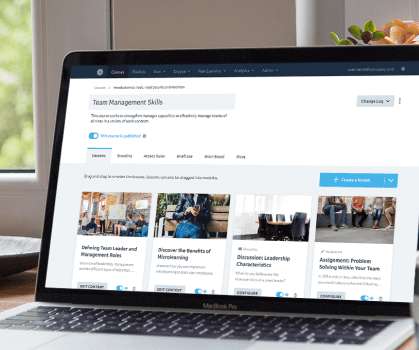10 Tips on How to Use Your LMS for Knowledge Management
Ed App
SEPTEMBER 12, 2021
Knowledge management means thinking about the knowledge of your organization. All the above (and much more) is the knowledge of your enterprise and it’s vital that you also have a knowledge management system that houses all that information and data. Why is knowledge management important?
































Let's personalize your content